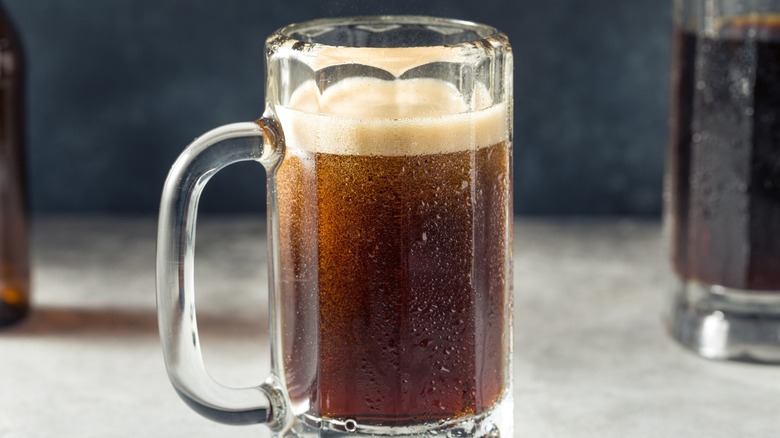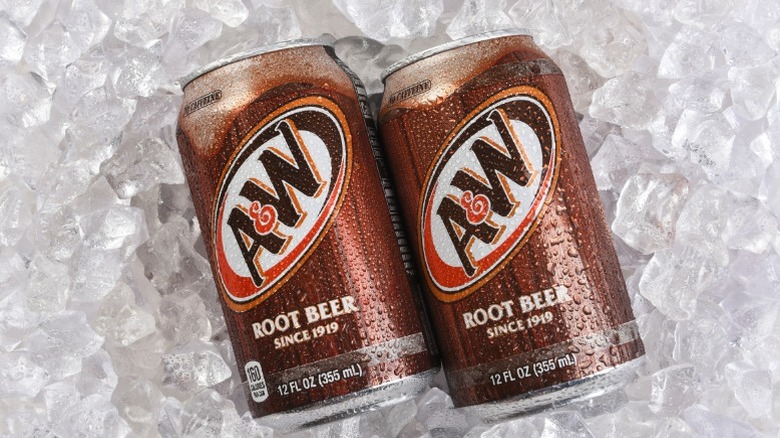Did Root Beer Ever Actually Contain Alcohol?
It may taste a little like mouthwash (thanks to the inclusion of a flavoring called wintergreen), but there's something to be said for a tall, frosty root beer, even if you don't add vanilla ice cream to make a root beer float. Unlike other soft drinks such as Coca-Cola, whose fizz dissipates moments after pouring, you can get a respectably frothy head on root beer. And there's a certain old-America charm to it, a connection to drugstores and soda fountains past, that makes it a truly satisfying experience. Besides, if it's good enough for Snoopy to quaff while he's roaming the French countryside as a World War I flying ace, it's good enough for you. But why is it called root beer? Did it ever contain alcohol? Nope. In fact, it started life as a non-alcoholic alternative to the harder stuff. The name comes from the unusual (for a soda) way the drink was brewed in the past, a practice which some makers continue to this day.
The "root" part of "root beer" comes from the many herbs and roots that were used to make the drink, primarily sassafras (which is no longer in use, replaced with artificial flavoring), but also including wintergreen, sarsaparilla, juniper, birch, and many, many other ingredients. The mixture would be reduced to a syrup, at which point traditional manufacturers would add water and some yeast, fermenting it just enough to add a little alcohol for flavor while still remaining functionally non-alcoholic — hence the "beer" part.
The origins of root beer
Although Native Americans made use of sassafras root for centuries before European colonists arrived in America, root beer as we know it didn't develop until the 19th century. Originally, the mixture was medicinal, not unlike the teas Native Americans made from sassafras, which were an important predecessor of root beer — and usually served hot. Exactly what went into the root beer and how it was made depended heavily on who made it for a while. It wasn't until the 1870s, when a pharmacist from Philadelphia named Charles Elmer Hires started to sell his own take on it, that root beer became more standardized, starting with the name. Hires named it "root beer" in hopes that coal miners would take to it, a move which angered some prohibition activists.
At first, Hires sold root beer as an extract, which could be stirred into a mixture of water and sugar at home; eventually, he decided to cut out the middleman and sold it cold in bottles. Although his brand isn't around today, some of his competitors have survived: Barq's, founded by Edward Barq, now owned by Coca-Cola, and A&W, now its own chain of restaurants.

